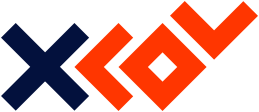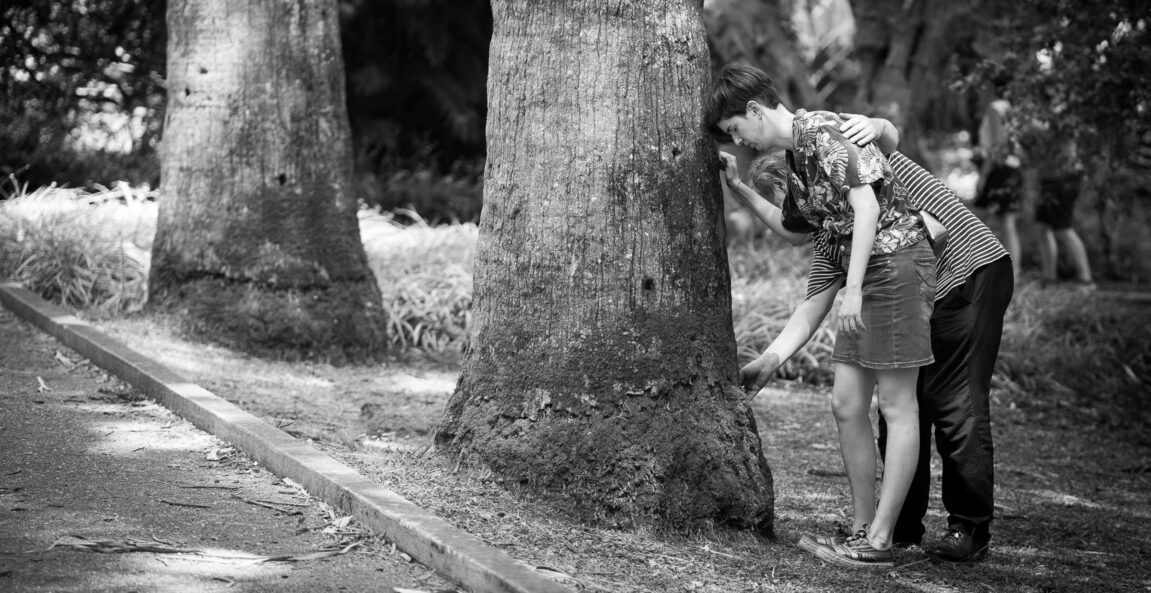Open formats are methodologies for thinking and doing together. Despite the relevance of the methodologies used to share knowledge, we usually resort to the most conventional formats: paper presentations, round tables, etc. This offers a collection of experiments with meeting formats as pedagogical spaces for the apprenticeship of ethnographic experimentation and encourages the need to document these ‘experiments’ so that they may travel, be learnt and reproduced elsewhere.
Meetings are, together with papers and books, perhaps the quintessential mechanism for the circulation of academic knowledge. And yet, despite their relevance, we usually resort to the most conventional formats: paper presentations, round tables, etc. Nevertheless, anthropology has recently recognised the need to explore other ways of sharing our knowledge and thinking together. The lab call that EASA has made in the last conferences evinces an interest that we at the Collaboratory for Ethnographic Experimentation (#Colleex) network also share.
In our case, we strongly believe that formats to share and think together should be considered as part and parcel of a discussion on ethnographic experimentation. In our work we have been exploring these venues using the rather loose term open formats. What are they? And, most importantly, what can an open format be? In this sense, this documentation project has a twofold goal. First, we aim at bringing for discussion the relevance of experimenting with meeting formats as pedagogical spaces for the apprenticeship of ethnographic experimentation. Second, we argue for the need to document these ‘experiments in meeting’ so that they may travel, be learnt and reproduced elsewhere.
1. Meetings as academic encounters, and venues to re-train ourselves
Adolfo: We meet to share knowledge and learn: at large conferences or intimate workshops, in the classroom with students or in seminars with colleagues. A screen, somebody standing, a series of slides over 10, 20 … even 30 minutes! Sometimes the speaker sits rather than stands. And then, questions at the end. This arrangement applies to most of the meetings we have had and are likely to have over our academic career. We meet to learn, but perhaps, and this is our point, we should learn to meet. Because meetings are, together with papers and books, quintessential in the circulation of academic knowledge. And yet, despite this, we usually resort to the most conventional formats: panels of paper presentations and round tables. We want to explore new ways to get together.
Meetings are extended bureaucratic forms, organisational techniques and forms of relationality across all kinds of collective and organisational contexts. Defined in space and time, meetings always point to a larger context. This is the argument made by Hannah Brown, Adam Reed and Thomas Yarrow (2017) in a special issue devoted to the topic. Thus the relevance of meetings has to do with the effects they produce beyond. To quote Brown et al.: “[meetings] contain and animate social worlds outside the spatially and temporally demarcated arenas through which they take place” (Brown et al. 2017: 12).
There is always something at stake beyond then: interests, contexts and agendas that shape a meeting and will be affected by it. Marilyn Strathern has argued that meetings, as organisational events, constitute miniaturise versions of the collectives they are embedded in: “meetings mimic larger apprehensions of a scaled-up object” (2017: 197). In a period of transformation that seems to call to experiment with new forms of producing knowledge, I would say that we need to mimic in our meeting methods this experimental impulse.
Tomás: At the Collaboratory for Ethnographic Experimentation we are trying to open up venues to rethink the norms and forms of ethnography, and more specifically, the ways in which we do and narrate fieldwork. Hence, since we started out almost two years ago now, we have tried to foreground the particular social and material interventions, the devices and the spaces, the discourses and the practices, through which forms of fieldwork beyond the canonic participant observation could be examined in closer detail.
Seeking to explore alternative meeting formats, we organised our first workshop in Lisbon last year. We devoted half of the programme to an exploration of situation-based, art-oriented, multi-sensory, spatial and audio-visual and other work that we called ‘open formats’. In this alternative meeting mode to the regular paper presentation, we not only experimented with fieldwork and how to learn to do it differently. Also, open formats became reflexive situations whereby what it might mean to experiment could be centre-staged, highlighted, examined, and debated. But as we would like to discuss today, our interest in ‘open formats’ goes beyond a mere playful exploration in a workshop. This is why we are suggesting to meet today in order to learn how to meet in many different alternative ways: Meeting in order to learn how to do fieldwork otherwise, meeting to appreciate what it means to experiment in fieldwork and what it brings. In fact, we believe that we should devote time and space to understanding open formats as interesting learning and fieldwork devices, and to making them relevant for teaching and research…
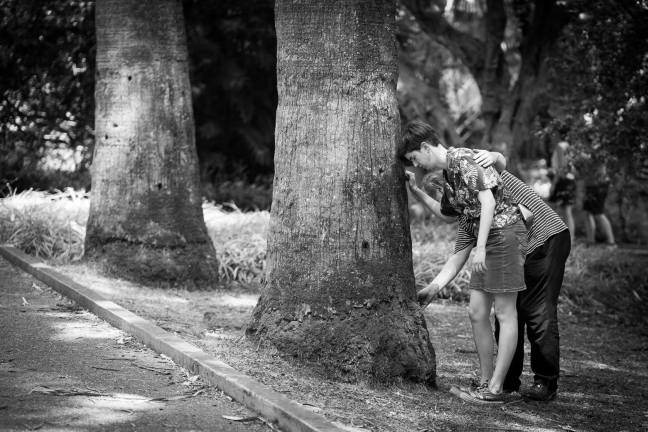
Adolfo: One source of inspiration has been the realisation, captured by Michael J. Fischer, that “life is outrunning the pedagogies in which we have been trained” (2003: 37). Or, to put it differently, engaging with forms of ethnographic experimentation has made us realise that conventional ethnographic training–or, to be more specific, the canon expressed in many handbooks and manuals of ethnography–is not adequate to the challenges fieldwork poses today. A second source would be our own very ethnographic engagement: some of us at Colleex we have learnt from our epistemic partners in the field, such artists and activists, alternative ways to come together. This doesn’t just mean that they have shown us specific meeting formats but that we have learn to inhabit in sophisticated ‘how-to’ meeting cultures: ones that mobilise an ecology of practices whose key goal is to get us together to engage in forms of joint research. From our partners we’ve learned about composing ambiences for discussion, arranging spatial layouts, deploying varied technologies for record keeping and documentation, unfolding practices of care… That is, practices whereby ethnography becomes an art of learning to relate–meet, tell, forge relations– in order to relate–that is, to keep on meeting, telling, and forging relations– .
Eeva: We agree that heterodox and improvisational formats also generate academic value, and that they could and should be supported further through documentation. And so we thank EASA for the way it is seeking to break out of such constraints through, for instance, labs. EASA has been trying to raise awareness and give some relevance in the programme to labs. To us, labs are not just ‘blah’ they are not a mere playful format, but fundamental sites where the renewal of learning and ethnographic fieldwork might be attempted in a miniaturised time and space. Hence, this lab focuses on how labs matter. This is, then, a lab on how labs operate, a lab of labs…
Anna: In that sense, and putting open formats centre-stage, perhaps we should outline some different modes in which open formats happen. I can think of three modes: (a) meetings in which we convey our knowledge through open formats; (b) meetings in which we generate knowledge through open formats; or (c) meetings in which we show experimental fieldwork devices through open formats. Of course they aren’t as distinct from each other as this, but we need to disentangle their different moments: (a) knowledge-production happening before the format takes place, (b) knowledge being simultaneous or reciprocal with regards to the format, and (c) knowledge being derived from the open format. Meetings of academic content combine these by sharing knowledge from the field and generating more knowledge around it in the meeting. By analogy with paper presentations, later developed into articles or fully written-up papers, what would be the most finished form of an open format? How can we translate this step of the process where knowledge becomes more integrated into open formats? How could we generate the situational knowledge we could to take beyond the situation, and how could it be shared? What role would documentation play in this? And, also, what kinds of documentation are we talking about?
Eeva: We recognize a need for more adequate accounts of fieldwork than tropes and modes that build on ‘participant observation.’ We share an imperative to verbalize or articulate in more-than-textual terms but also to embody the formats and devices through which we encounter and engage the world. We also recognize the need to give some structure and even a little order to the space we as #colleex are occupying, and which we hope enables further developments in heterodox forms of research. There are multiple voices and divergent projects in this space, not just the wider network, but even among ourselves as convenors. (We don’t want to kill the network or limit ourselves by trying to agree on everything, let alone reach consensus.)
But if we are to practice new ethnographic modes and have them recognized and valued, we do need to take a position on what experimental fieldwork might constructively be guided towards and why, and this is where documenting and discussing the ways in which we do it, or drawing inspiration from one another to attempt newer ways, plays a fundamental role. Though of course any attempt at articulating this in any genre is likely to be somewhat hesitant, always contingent and probably relational. It’s not reform so much as a recognition of already productive work and thinking that’s needed. This won’t be easy in the university’s profit-oriented institutional set up, but a drive to push along these lines is definitely there. In places it’s already possible to work without reducing ethnographic insight to text or things like ‘key performance indicators’, plus it’s clear that the extremely serious can easily and productively dovetail with the playful. What we now need is a lively, possibly provisional, documentation format that can travel and contribute to pedagogy.
Adolfo: A reflection on how and why to do this, is an integral part of our work about ethnographic experimentation, as a specific ethnographic modality beyond participant observation. But beyond just talking about it or giving it value, the challenge ethnographic experimentation poses is that it requires different forms of ethnographic training. This argument links to a debate on the transformations of fieldwork in the contemporary and the need to re-equip our discipline (Rees 2008). Paul Rabinow, Chris Kelty and Kim Fortun for instance have explored other forms of learning with their students and young researchers (Rabinow 2011, Marcus 2013, Kelty 2008, Fortun 2008). The volume edited by George E. Marcus and James D. Faubion (2009), Fieldwork is not what it used to be, is exemplary in this sense. It makes a strong case for the need to renew pedagogies in the anthropological profession if we want to measure up to the challenges of the contemporary. Specifically the PhD is an exceptional learning moment or space to experiment with the possibilities of ethnography, as Marcus has argued: it constitutes a threshold where the limits of the norm and form of field work are negotiated (Marcus 2009). This has led to rehearsing formats borrowed from other disciplines, such as the ethnocharrette or the design or art studio. In a similar vein, Paul Rabinow has explored what he designates labminar, a space of academic exchange that remediated–that, is, changed from one media to another– the meetings of the laboratories he studied. In these spaces Rabinow, together with his students, explored the possibility of “new forms of inquiry through ways collaborative guided by an ethic of care” (2011: 142).
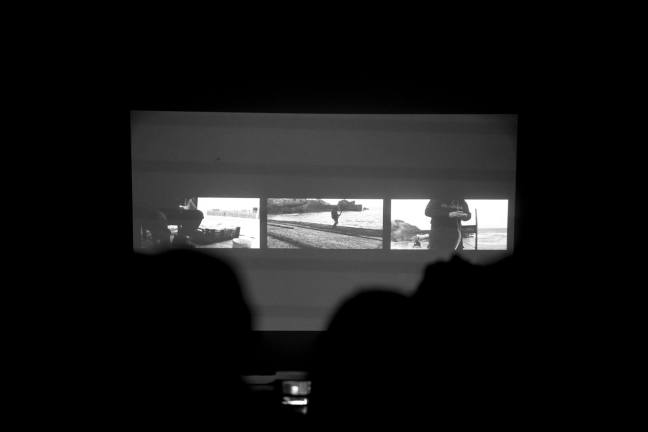
2. On the importance of archiving documentation of meetings and open formats
Adolfo: If ethnography is moving beyond the solitary to the collaborative, shifting away from the visual to multi-sensory, being captured not just textually but in other mediums, how are these conveyed? Can and should they be captured and re-moved to other locations?
Tomás: Perhaps we need to reflect on how to document, how to tell, how to narrate all these experiences, beyond the very situations in which they happen… How to make them travel?
Anna: And how can the multi-sensory experiences be documented or made relatable at all? For instance, open formats in mode (c) as I introduced it earlier – that is, as meetings in which the production of knowledge derives from the very open format itself – entail a particular form of documentation. And the documentation of fieldwork encounters and experiments is different, I think, from the documentation of the open formats with which we either seek to produce knowledge (b) or to just transmit knowledge (a).
Tomás: What if we gathered the documentation of open formats into something like a collection… Would this help to discern different approaches to ethnographic experimentation, or serve as inspiration to practice more experimental forms of ethnography?
Eeva: Assuming this is desirable, and that documentation should be easily accessible, what should we call this thing? Not a handbook… An inventory or list, taxonomy even? An archive? A library of how-to manuals or toolkits, even a protocol? A recipe collection or a cookbook?
Tomás: There are implications in calling it an inventory or a cookbook. Both are nice terms, but they connect to different powerful imaginaries and aesthetics that could have a potential impact on the output…
Eeva: Terminology always carries baggage. The term cookbook is perhaps most open and tolerant of gaps. Inventory is perhaps the most rigid and colonizing word we might use. This is certainly so if it consists of standardised entries to be completed in each case, and assuming some underlying structure that is infinitely transferable from context to context.
Tomás: I think there are also different notions of these terms, and I am not that sure that an inventory is colonial per se… It certainly brings to mind an imaginary of knowledge as taxonomy and logistics. Is that the connotation that we want? If we’re talking about a gathering of open formats, their very openness suggests more the idea of recipes people can alter, transform, adapt, that the openness doesn’t just refer to the types of meetings being experimented, but also the types of documentation being attempted, not to speak of the openness of their subsequent uses?
Anna: I think if we use the word cookbook it will need a very clear explanation of our understanding of recipe, that it is a mix of things whose outcome can vary. My first association with recipe is still the “take a+b, get c” type of thing, and I don’t think that’s what we mean. Maybe we could even be more open with our metaphor and use something that is more abstract and doesn’t yet have that connotation, I’m thinking carousel (for dynamics) or something that is a an open collection, not a box and not an a+b=c connotation.
Eeva: Metaphors and words do matter. Still, as texts and in texts, these vocabularies can all be read as if they were fixed, but they can also all be invitations to improvise and work on them further. One of the key motivations for documenting any research is to share experiences and inspire further adaptation. I think what we are calling for is ways of expanding our academic (and other) imagination. At the same time, some people might be reading documents to get going, to learn something totally new, in which case a step-by-step set of instructions might be handy. Documentation as a way of giving an account (whether as a story or financially) is also simply an invitation to engage and respond, to continue. In the case of #colleex, it’s a kind of reconstructed epistemic practice we’re looking for, that cares for the ethnographic in all its dimensions: as interpersonal engagement, fieldwork, description, theory and combinations of them all.
Tomás/Adolfo/Anna/Eeva: Hence, in this spirit, we are meeting today to show you our first steps in attempting how and why to document, something that started after our workshop in Lisbon. In what follows, we will show previous documentation of several open formats. But our aspiration would be to think beyond these first baby steps, and to invite you to join us in meeting to further discuss how we might imagine to document the inventiveness of open formats, and what for? What should be the appropriate genres, archival modes, styles? And, after discussing this, we would also like to propose engaging in a process of documenting the experimental ethnographic practices and accounts of open formats in the conference’s labs: where we think this might be a bit more explicit. But we also reckon that not every lab has to be necessarily experimental, and maybe experimentation in and around open formats might also be discussed in presentations across the conference.
Our proposal would be to display such a documentation in our digital platforms, so that we could open up a further discussion and a learning space on how to train ourselves to undertake experimental ethnographic modes. For this, we could use the hashtag #colleexperiments to collect the documentation gathered by all of us. It is our hope that the reflections and the hands-on work in this lab, could pave the way to something like the alternative to the handbook we discussed beforehand. Perhaps, in doing this we could collectively imagine how to make such a cookbook?
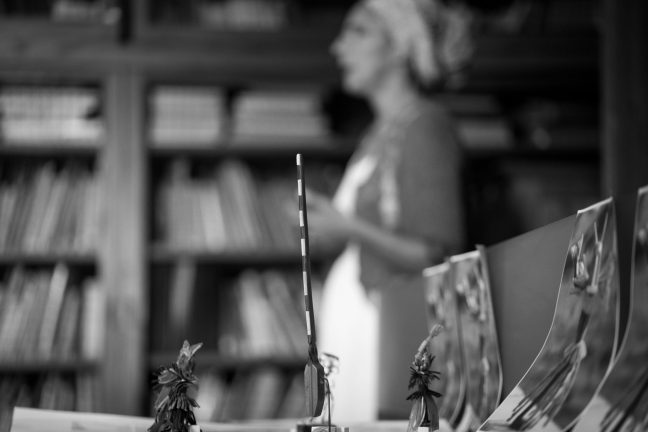
References
Brown, H., Reed, A. & Yarrow, T. (2017). Introduction: towards an ethnography of meeting. Journal of the Royal Anthropological Institute 23(S1): 10-26.
Faubion, James D. & George E. Marcus (eds.). 2009. Fieldwork is not what it used to be. Learning Anthropology’s Method in a Time of Transition. Ithaca, NY: Cornell University Press.
Fischer, Michael M. J. 2003. Emergent Forms of Life and the Anthropological Voice. Durham, NC: Duke University Press.
Fortun, Kim. 2009. “Figuring out ethnography”, in James Faubion y George Marcus (eds.), Fieldwork isn’t what it used to be: 167-183. Ithaca, NY: Cornell University Press.
Kelty, Christopher et alt. 2008. “Fieldwork after the Internet. Collaboration, coordination and composition”, in James Faubion and George Marcus (eds.), Fieldwork isn’t what it used to be: 184-206. Ithaca, NY: Cornell University Press.
Marcus, George E. 2009. “Introduction. Notes toward an Ethnographic Memoir of Supervising Graduate Research through Anthropology’s Decades of Transformation”, in James D. Faubion and George E. Marcus, Fieldwork is not what it used to be. Learning Anthropology’s Method in a Time of Transition:1-34. Ithaca, NY: Cornell University Press.
Marcus, George E. 2013. “Experimental forms for the expression of norms in the ethnography of the contemporary”. HAU: Journal of Ethnographic Theory3(2):197–217.
Rabinow, P., Marcus, G. E., Faubion, J. D., & Rees, T. (2008). Designs for an Anthropology of the Contemporary. Durham: Duke University Press.
Rabinow, P. (2011). The Accompaniment: Assembling the Contemporary. Chicago: University Of Chicago Press.
Rees, Tobias. 2008. “Introduction”, in Paul Rabinow, George Marcus, James D. Faubion y Tobias Rees (eds.), Designs for an Anthropology of the Contemporary: 1-13. Durham, London: Duke University Press
Strathern, M. (2017). Afterword. Journal of the Royal Anthropological Institute 23(S1).
Position paper introducing ‘A lab of labs: Documenting open formats‘ (a lab at EASA 2018’s conference).
SOURCE: Published as part of the Colleex Open Formats, August 10, 2018.
TOP IMAGE: Image of a sensory walk ‘open format’ organized in the 1st Colleex Workshop ‘Ethnographic Experimentation
Fieldwork Devices and Companions’ (Lisbon, 2017) by Vitor Barros. #Colleex is a network that aims to open a space for debate and intervention around experimental forms of ethnographic fieldwork. Amid profound debates in recent years on the nature and conventions of ethnography, #Colleex seeks to explore novel forms of knowledge production for anthropology. The network is organized as a collaboratory whose main agenda is to foster practical explorations alongside theoretical debates on what we call ethnographic experimentation.
